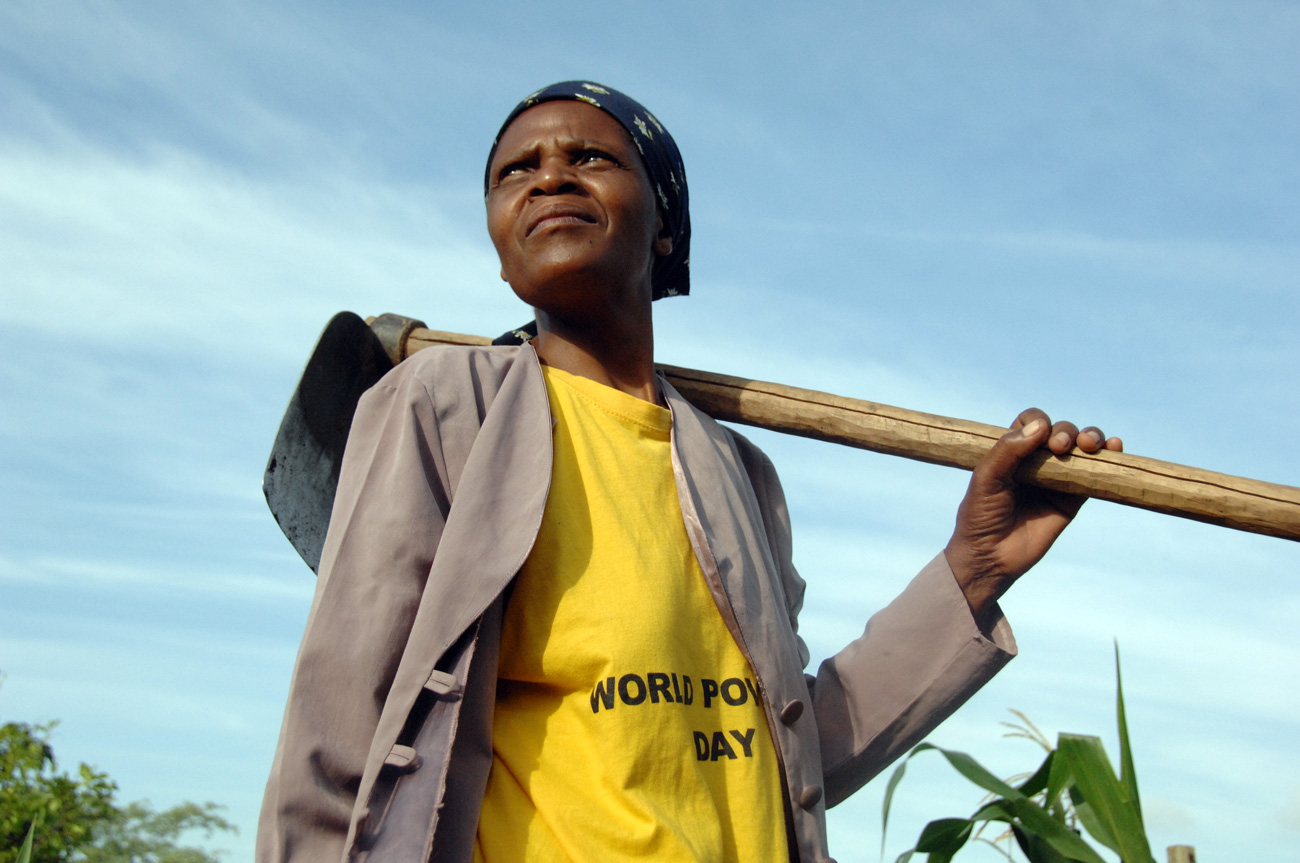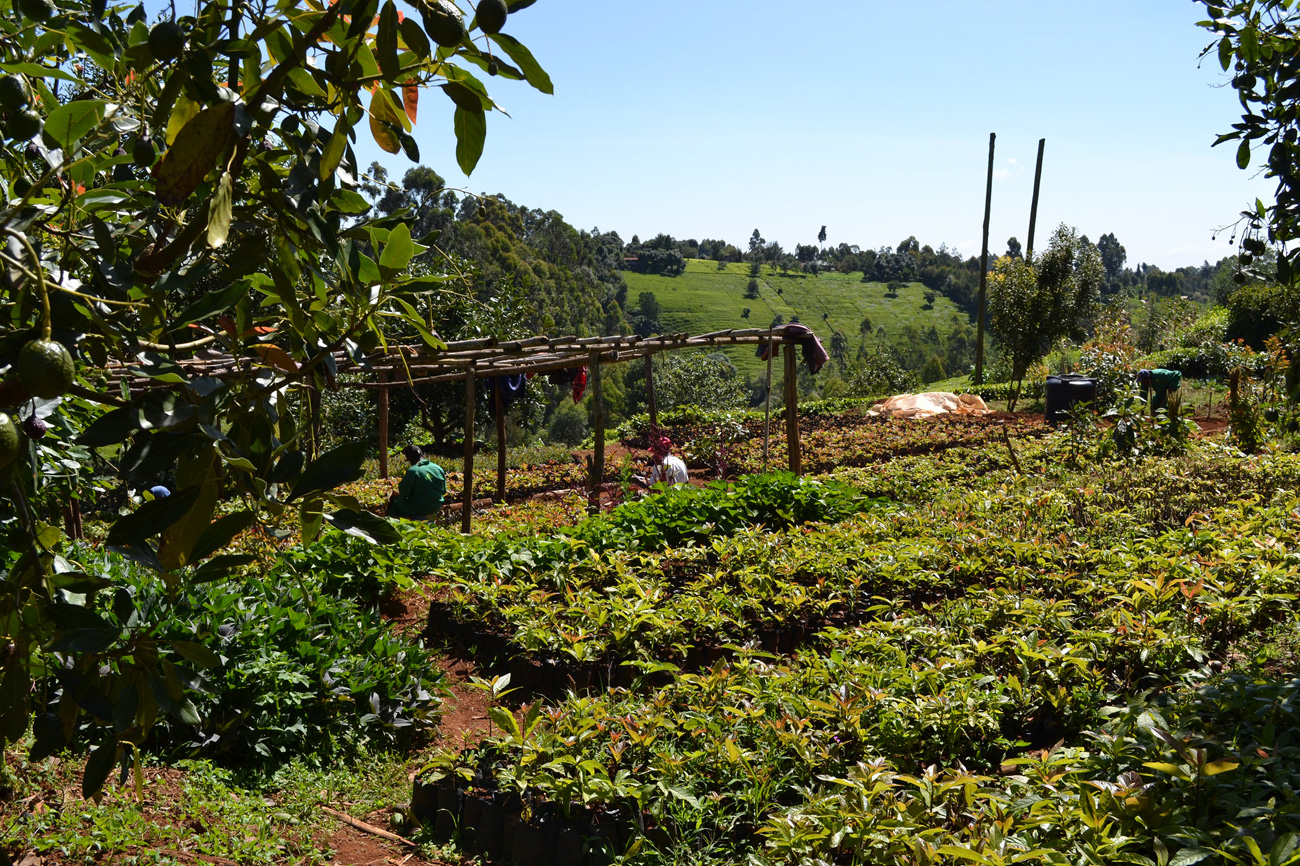As COP15 tackles desertification, here are three ways IFAD is helping farmers in sub-Saharan Africa build their resilience to climate change
IFAD Asset Request Portlet
Asset Publisher
As COP15 tackles desertification, here are three ways IFAD is helping farmers in sub-Saharan Africa build their resilience to climate change
Estimated reading time: 4 minutesSub-Saharan Africa’s drylands – that is, the areas where more water is lost through evaporation than gained through rainfall – are facing widespread degradation. There are many factors causing this, but one of the most prominent is the use of agricultural practices that aren’t adapted to the land, such as overgrazing and intensive agriculture (the use of techniques that maximize productivity and yields, often in a way that disrupts the balance of natural resources).
Unfortunately, any gains brought about by these practices are short-lived. When natural resources are degraded, farms produce less. Small-scale farmers struggle to provide their families with nutritious food and risk losing their livelihoods entirely. And in recent years, shifting rainfall patterns due to climate change have begun to make places even drier, accelerating the processes of degradation.
Since 2017, IFAD has led the Resilient Food Systems programme (RFS), an initiative to promote sustainable natural resource management and transform food systems in 12 countries across sub-Saharan Africa. The RFS is one of several Integrated Approach Pilots supported by the GEF in an effort to combat environmental degradation.
Here, we take a look at three RFS country projects supported by IFAD. Each of them has introduced innovative ways of helping communities protect their drylands, maintain food security, and prepare for the effects of climate change still to come.
 |
| Today, Swazi women are stepping up. |
Eswatini: Women take their seat at the table
Agriculture is the foundation of Eswatini’s economy – but lately, it’s become harder to practice. Overgrazing, deforestation and other inappropriate farming practices are eroding the soil, depriving the population of nature’s benefits, like clean water and fertile land.
But, although many Swazi have good ideas about how to tackle these problems, some of them struggle to be heard. In Eswatini, women are generally left out of decision-making. Even when they’re elected to leadership positions, they often turn them down, because of social norms that value men’s leadership over women’s. (That’s despite research that shows that, when women are equally involved in community-based natural resource management, it leads to better land rehabilitation, reverses desertification, and improves socioeconomic conditions.)
Today, the RFS Eswatini project is creating positive change. This award-winning initiative is creating conservation areas to give wildlife space to flourish, introducing diverse foods, and installing solar-powered irrigation in once-degraded lands.
It’s also challenging social norms to ensure women can participate fully in efforts to conserve the environment and build livelihoods. It’s working with local administrations to recognize women’s participation in agriculture. And women are stepping up. Today, a quarter of women in community institutions occupy chair positions. Women are planting demonstration plots and instructing others – both men and women – on sustainable land management.
Niger: Nutrition security through natural resource management
Farming is becoming more difficult in the “breadbasket” regions of Niger, too. In these Sahel drylands, farmers are seeing once-fertile lands dwindle due to erosion, deforestation and declining water availability.
Now, the RFS Niger project is helping family farms conserve this fragile environment. It’s promoting good practices that help small-scale farmers save water and restore degraded lands.
As of 2021, about 74,000 Nigerien farmers had been trained in sustainable land management practices. Some of them involve returning to traditional practices, such as growing trees and shrubs in zaï, pits filled with manure to condition the soil. In this way, small-scale farmers have restored about 30,000 hectares of degraded land, and they’ve participated in the assisted natural regeneration of another 188,000 hectares – an area the size of Mauritius.
When the land becomes healthier, the people do, too. Nearly two-thirds of project participants have reported significant reductions in malnutrition in their households, thanks in part to new food preparation techniques informed by the project.
 |
| An avocado tree nursery just north of Nairobi. Avocado trees are a great choice for combating soil erosion – and the avocados are very profitable for local farmers. © Laura MacInnis (GEF) |
Kenya: The private sector joins in
Almost all the water used by the 4 million inhabitants of Kenya’s capital, Nairobi, comes from the Tana River. Over the years, the Tana’s catchment area has been turned from forests into fields that tens of thousands of small-scale farmers depend on. But, all too often, their farming techniques aren’t sustainable. As a result, soil erosion has increased, the land has become less productive, and water quantity and quality have plummeted, leaving less available for drinking and industrial use downstream.
The RFS Kenya project, led by IFAD and implemented by The Nature Conservancy, brings in private-sector investors from downstream, like Coca-Cola and East African Breweries, to finance thousands of upstream small-scale farmers in their work to restore degraded land, harvest water, improve the soil and grow less water-hungry crops.
With over US$20 million in funding, along with co-investments of US$1.6 million from private sector partners, the project has enabled small-scale farmers in the Upper Tana watershed to restore nearly 73,000 hectares of land. Together, they’ve planted 3.4 million seedlings and installed about 14,500 rainwater harvesting pans, collecting nearly 2 million cubic metres of water for irrigation every year.
Today, the project has become an independent NGO known as the Upper Tana Nairobi Water Fund. It’s proof positive that private sector support can be mobilized to support the poorest rural dwellers – and when small-scale farmers thrive, everyone thrives.
Investment in the future
Right now, COP15 – the 15th meeting of the UN body dedicated to fighting desertification –is issuing a global call for sustainable land management, especially in drylands. It’s a recognition that land degradation gives rise to poverty, hunger, pollution and increased risk of natural disaster, and makes communities more vulnerable.
As these projects show, integrated approaches to sustainable land management are the way forward for resilient livelihoods and food systems – even in the face of climate change.
Learn more about IFAD’s support for Resilient Food Systems.
Publication date: 12 May 2022